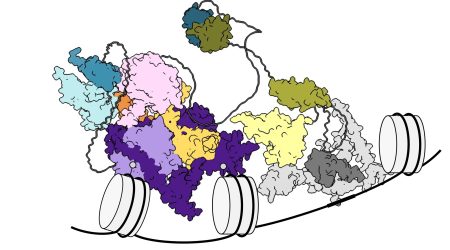Team wins funding to probe epigenetic memory mechanisms

An ambitious scientific investigation into how organisms remember environmental changes at a cellular level has been awarded European funding.
Episwitch is an interdisciplinary five-year programme led by Professor Dame Caroline Dean at the John Innes Centre.
It has won funding from the European Research Council (ERC) to investigate common epigenetic mechanisms that switch genes to a silent state.
Epigenetic changes to gene expression are changes that are heritable through cell division but do not change the DNA sequence. These changes are sometimes triggered by environmental or seasonal factors.
The project will exploit a well characterised plant gene system Arabidopsis FLC to address the core events that constitute an epigenetic switch mediated by Polycomb, a family of proteins that remodel DNA.
The programme aims to provide important new concepts in Polycomb-mediated epigenetic switching mechanisms; concepts that are relevant to the whole epigenetics field.
Professor Dean is one of 222 scientists from 29 nations to receive ERC Advanced Grants for 2019, sharing a total grant payout of €540 million. Funding is up to €2.5 million per grant.
Professor Dean says: “Our project will elucidate concepts that can then be exploited and generalized across many organisms.”
“If successful, this work has the potential to open many new horizons in the manipulation of Polycomb switching mechanisms, ranging from cancer therapeutics to agriculture.”
The programme combines molecular genetics/biology, computational biology with structural biology.
It is a collaboration between Professor Dean’s lab, that of Professor Martin Howard at the John Innes Centre, Dr Mariann Bienz (MRC Laboratory of Molecular Biology, Cambridge) and Dr Julian Sale (MRC Laboratory of Molecular Biology, Cambridge).
The programme is titled, Episwitch: Mechanistic basis of nucleation and spreading underlying a Polycomb-mediated epigenetic switch.
The ERC estimates the 2019 round of grants could lead to the creation of 2,000 new jobs. Other winners will tackle questions such as how to help our biological clocks cope with 24/7 modern lives and how to improve the generation and storage of renewable energy.
ERC President Professor Jean-Pierre Bourguinon said: “Another 222 researchers from all over Europe and beyond will pursue their best ideas and are in an excellent position to trigger breakthroughs and major scientific advances.”



